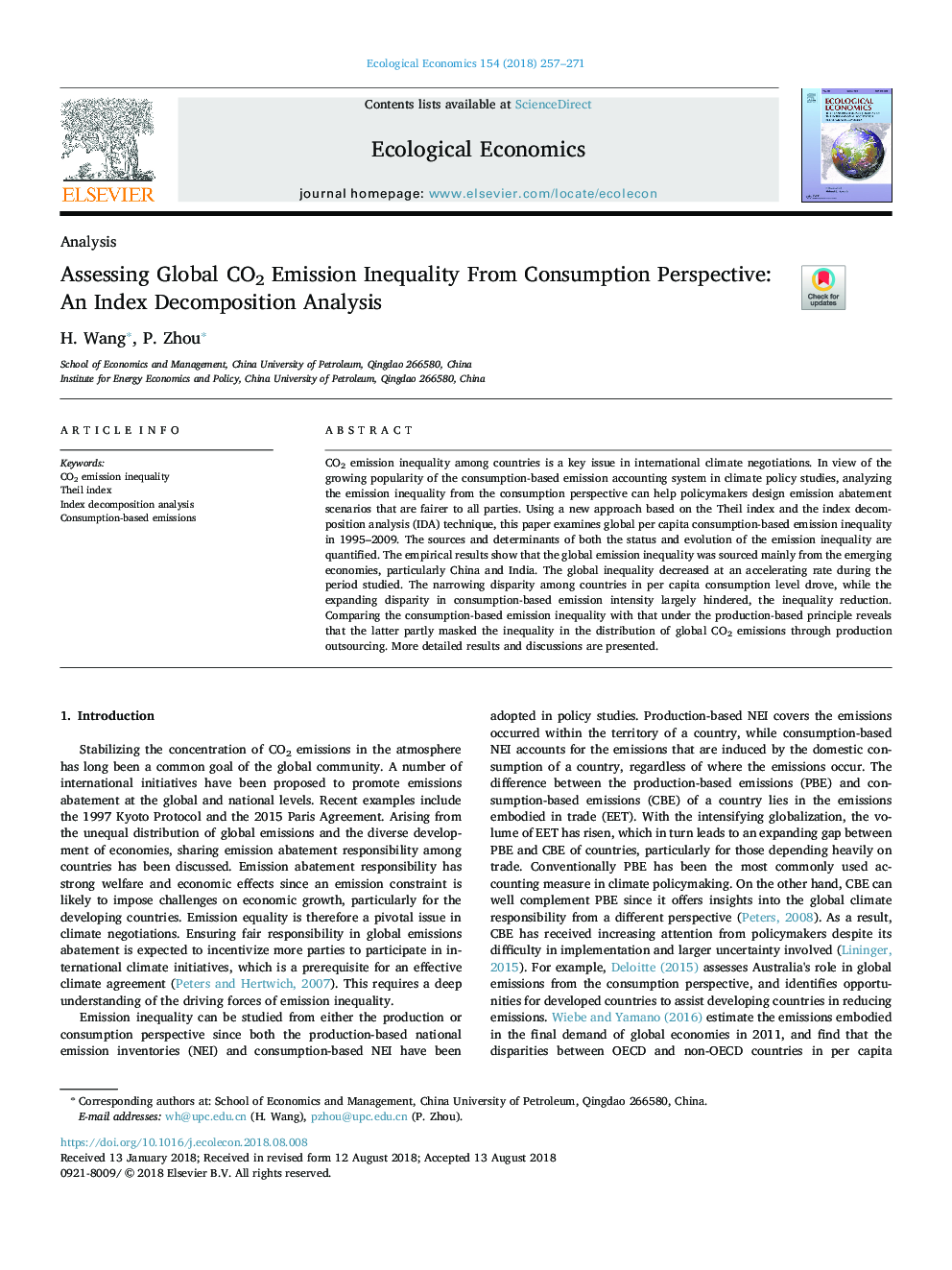| Article ID | Journal | Published Year | Pages | File Type |
|---|---|---|---|---|
| 11004750 | Ecological Economics | 2018 | 15 Pages |
Abstract
CO2 emission inequality among countries is a key issue in international climate negotiations. In view of the growing popularity of the consumption-based emission accounting system in climate policy studies, analyzing the emission inequality from the consumption perspective can help policymakers design emission abatement scenarios that are fairer to all parties. Using a new approach based on the Theil index and the index decomposition analysis (IDA) technique, this paper examines global per capita consumption-based emission inequality in 1995-2009. The sources and determinants of both the status and evolution of the emission inequality are quantified. The empirical results show that the global emission inequality was sourced mainly from the emerging economies, particularly China and India. The global inequality decreased at an accelerating rate during the period studied. The narrowing disparity among countries in per capita consumption level drove, while the expanding disparity in consumption-based emission intensity largely hindered, the inequality reduction. Comparing the consumption-based emission inequality with that under the production-based principle reveals that the latter partly masked the inequality in the distribution of global CO2 emissions through production outsourcing. More detailed results and discussions are presented.
Related Topics
Life Sciences
Agricultural and Biological Sciences
Ecology, Evolution, Behavior and Systematics
Authors
H. Wang, P. Zhou,
